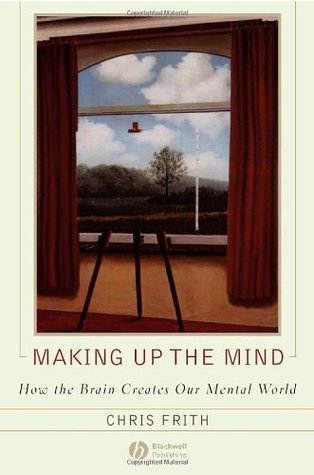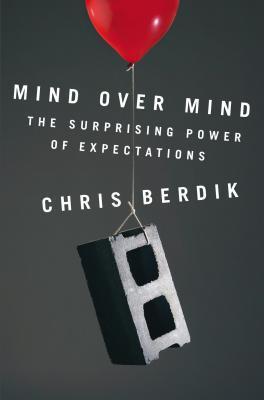
Making Up the Mind: How the Brain Creates Our Mental World
Book Description
What if the very essence of who you are is a master illusion? In "Making Up the Mind," Chris Frith unveils the astonishing mechanisms behind our thoughts, emotions, and perceptions, revealing how the brain intricately crafts the vibrant tapestry of our mental world. Journey through the realms of consciousness, from the profound impact of social interactions to the unexpected ways our minds can deceive us. Each revelation is a suspenseful twist in the story of self, challenging everything we think we know. How much of your reality is truly yours to control?
Quick Book Summary
"Making Up the Mind" by Chris Frith delves into the remarkable world of cognitive neuroscience, exploring how our brains generate the fabric of our mental experience. Frith reveals that much of what we experience as reality is a carefully crafted illusion, produced by complex brain processes that we are largely unaware of. He discusses how perception is not a passive reflection of the world, but an active construction by the brain, often shaped by expectations, prior knowledge, and social influences. The book challenges our notions of free will, shows how easily we can be deceived by our senses, and investigates the pivotal role of social interaction in shaping thought and consciousness. Ultimately, Frith's work contends that understanding our mental world requires embracing the illusionary and collaborative nature of human experience.
Summary of Key Ideas
Table of Contents
The Brain as an Active Constructor of Reality
Chris Frith’s investigation begins with the surprising premise that our brains actively construct reality rather than simply recording sensory data. The mind, he explains, is not a passive observer but a creative participant, piecing together fragmented and noisy information from the senses. In this process, the brain fills in gaps, makes predictions, and creates a coherent narrative, leading us to believe our experiences are accurate reflections of the external world. This construction process is so seamless that we seldom realize the extent to which our mental world is an invention.
The Illusion of Free Will and Consciousness
Frith addresses the topic of consciousness and the sense of agency—our core belief that we control our thoughts and actions. He punctures the illusion of free will, citing experiments where brain activity precedes conscious decision-making. This challenges traditional notions of autonomy, suggesting instead that consciousness is more about interpreting and narrating our actions after-the-fact than initiating them. Our belief in self-governance is, in many ways, a retrospective story our minds invent to explain behavior.
The Deceptive Nature of Perception
The book explores how perception can be easily tricked. Frith delves into optical illusions, hallucinations, and cognitive biases to illustrate how sensory data can lead us astray. He details how the brain sometimes fabricates entire experiences, as seen in cases of neurological disorders or during misinterpretations of ambiguous stimuli. These errors are not anomalies, but rather byproducts of the brain’s reliance on shortcuts and prior experience to efficiently process information in an uncertain world.
Social Influences on Thought and Behavior
Another central theme is the profound effect of social interaction on the mind. Frith discusses how our understanding of others’ thoughts (theory of mind) and our interpretations of social cues are essential for functioning in society. Social feedback loops help construct not only our sense of reality but also our own self-identity. Misreading social signals or being exposed to differing perspectives can significantly shift our mental constructs, demonstrating the highly collaborative nature of the mental world.
Frith concludes by emphasizing the necessity of acknowledging the illusory and constructed aspects of our mental life. Rather than diminishing human experience, recognizing these illusions unlocks deeper insights into the nature of consciousness, perception, and social engagement. By accepting that our reality is continuously shaped and reshaped by internal processes and external influences, we gain a richer, more nuanced understanding of what it means to “make up” the mind.
Download This Summary
Get a free PDF of this summary instantly — no email required.





